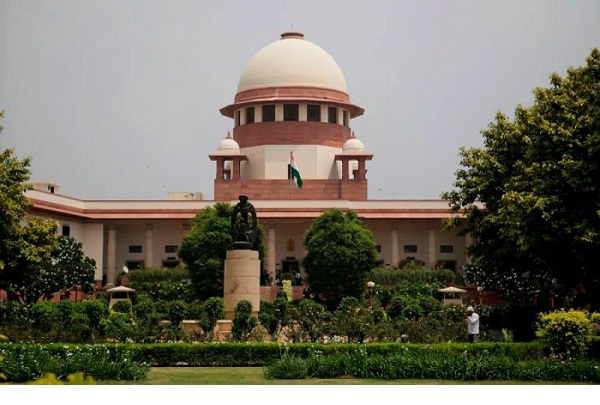KARACHI: Pakistan Stock Exchange above the 98,000 mark on Friday as share prices surged more than 2,000 points in intraday trade
NEW DEHLI: The Indian Supreme Court on Monday noted that Indian Illegally Occupied Jammu and Kashmir (IIOJK) did not attain sovereignty when it joined the union and that the occupied territory does not have internal sovereignty, NDTV reported.
Indian Prime Minister Narendra Modi-led government in August 2019 unilaterally abrogated the special status of the occupied valley and deployed tens of thousands of troops in a bid to ward off protests against the illegal move.
Subsequently, a batch of petitions challenged the abrogation of Article 370 of the Constitution and a five-judge bench led by Chief Justice of India (CJI) Dhananjaya Yeshwant Chandrachud heard the matter for 16 days and reserved its verdict on September 5.
The Indian CJP-led announced the verdict today and held that the occupied territory became an integral part of India "which is evident from Article 1 and 370 of the constitution".
The top court also upheld the Indian government's decision to abrogate the disputed region's semi-autonomous status, stating that the IIOJK "does not have internal sovereignty".
The Indian Supreme Court also directed the country's election commission to conduct elections in IIOJK by September 2024.
By repealing Article 370 of the constitution, people from the rest of India were given the right to acquire property in the disputed territory and settle there permanently.
Kashmiris see the move as an attempt to dilute the demographics of Muslim-majority Kashmir with Hindu settlers.
Pakistan had strongly condemned the move and vowed to “exercise all possible options to counter the illegal steps” taken by India.
India has for decades stationed more than half a million soldiers in the Himalayan disputed territory.
The suspension of IIOJK's semi-autonomous status allowed Indians from elsewhere to buy land and claim government jobs there, a policy denounced by critics as "settler colonialism".
Many residents and critics say that authorities have since curbed media freedoms and public protests in a drastic curtailment of civil liberties.
Modi's government has defended the decision in the court, saying the change had brought "peace, progress and prosperity" to the restive territory.
Consolidating New Delhi's rule over the IIOJK has long been a key plank of Modi's Hindu nationalist Bharatiya Janata Party (BJP).
You May Also Like
TEHRAN: The head of Iran’s Revolutionary Guards described the arrest warrant issued by the International Criminal Court for Israeli Prime
LOWER KURRAM: The death toll in yesterday’s gun attack on passenger vans in Khyber Pakhtunkhwa’s Lower Kurram has risen to 42,






